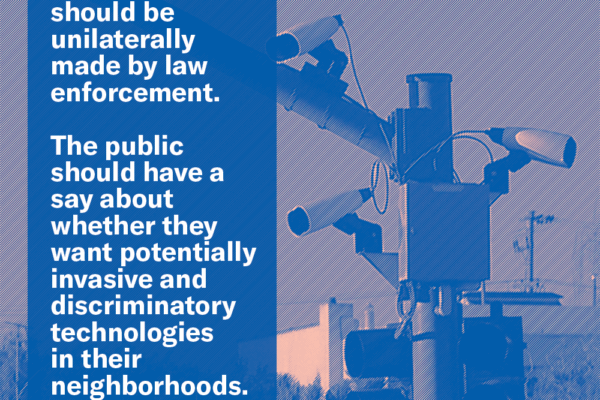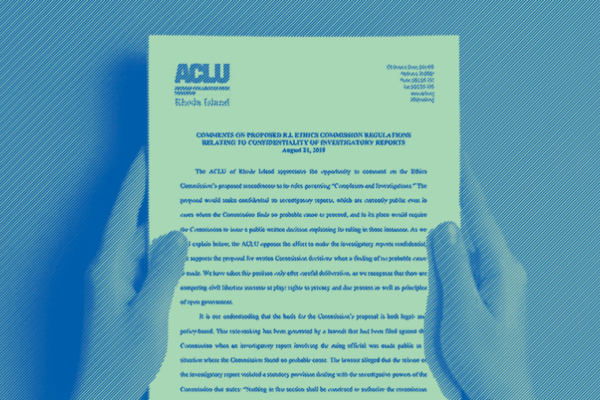The ACLU of RI issued the following statement in response to the installation of vehicle surveillance cameras in Cranston, Woonsocket and Pawtucket:
“The installation of surveillance tools that directly impact the privacy of Rhode Island residents and others driving through the communities where they are installed is disturbing in itself. But the clandestine nature by which the cameras were placed, and the failure of the three cities in which the trial implementation of this tool is known to be happening to seek any advance public input, only make this action more concerning.
“These are not decisions that should be unilaterally made by law enforcement agencies. Members of the public should have a say as to whether they support these potentially invasive technologies in their community – before, not after, they are installed. Further, the implication that only those residents who have committed crimes need to worry about these technologies is inappropriately dismissive of the secrecy with which these programs commenced and the persistent invasion of privacy that these cameras can pose to everyone.
“Marketing material on Flock Safety’s website promotes the ability that this technology has to enable searches not only by license plate number, but by identifying vehicle attributes like the color or make of the car. The public shouldn’t be deluded into thinking that these cameras act solely as ‘license plate reader’ devices when they, in fact, track and store much more detailed information than license plate numbers. The capability that these cameras have to indiscriminately track when and where drivers go can create an oppressive system of government surveillance in a free society.
“Flock Safety’s website also touts the view that it ‘supports the direct involvement of the community in crafting policies and providing oversight on public safety technology including ALPR,’ and even links to an ACLU-supported list of guiding principles governing surveillance technology. The fact that Rhode Island police in Cranston, Pawtucket, and Woonsocket forged ahead with installing these license plate readers before seeking any public input and before presenting clear, firm and specific written standards for their use only heightens the legitimate concerns that those who care about privacy should have about these cities’ actions. The ACLU of Rhode Island strongly urges their rejection.”
The ACLU indicated it would be looking further into the Cities' use of the cameras.



